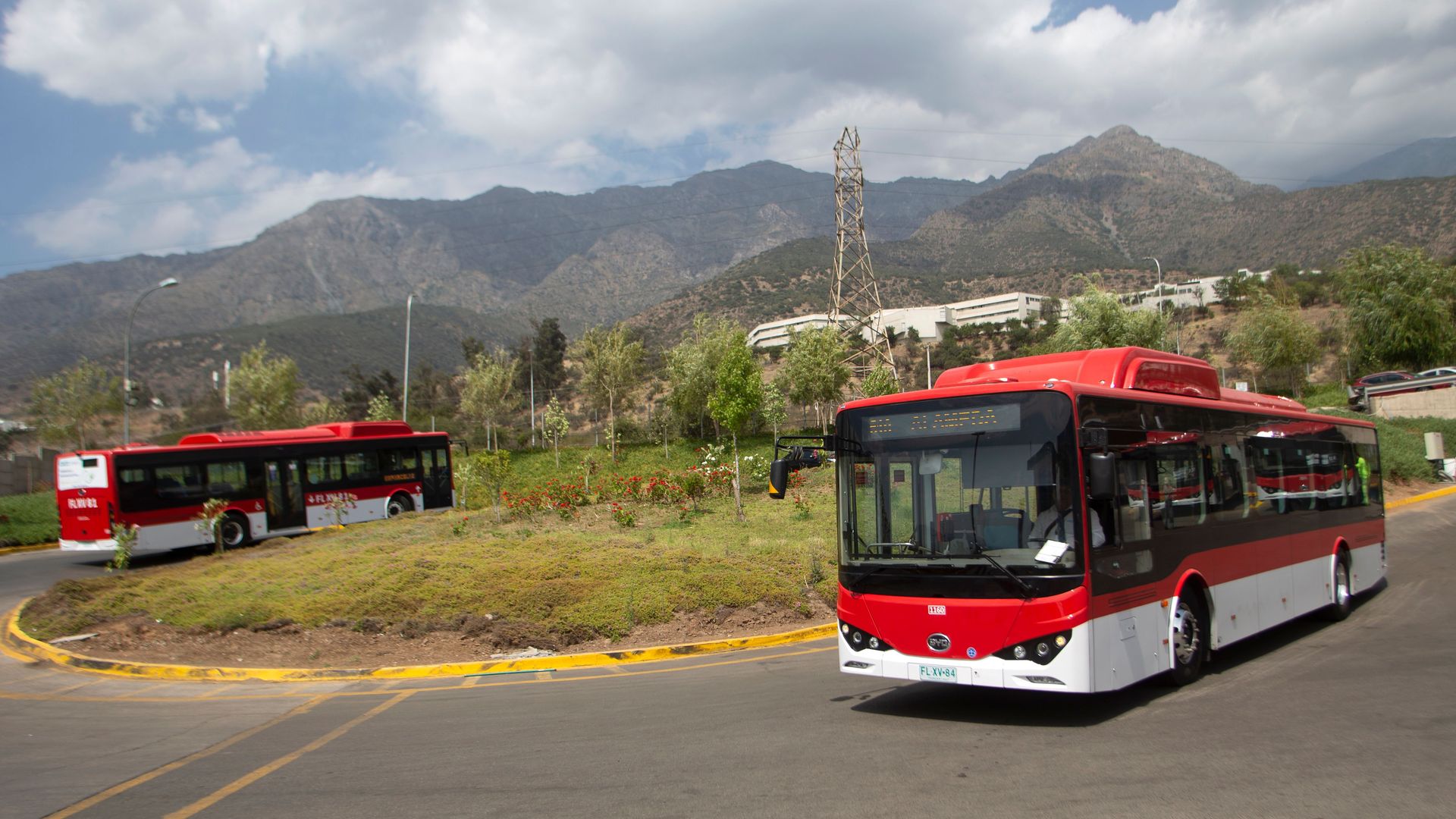Chinese electric buses help Chile reduce emissions, improve trade ties
Add Axios as your preferred source to
see more of our stories on Google.

Chinese-made electric buses in Santiago, Chile. Photo: Claudio Reyes/AFP/Getty Images
A recent delivery of 200 electric buses from Chinese manufacturers BYD and Yutong, with more orders to come, is advancing Chile's goals for electric-powered public transit — 80% by 2022 and 100% by 2040.
Why it matters: Chile is electrifying transportation to help clean its air, reduce urban noise pollution, cut oil imports and add more renewables to its energy mix. Moving toward electric mobility is also a way for Chile to tighten its trade ties with China, the dominant player in the global electric bus market.
Context: Transportation has contributed to significant pollution in Chile’s cities, with serious public health consequences. Adopting an all-electric taxi and bus fleet in Santiago could prevent 1,379 premature deaths, according to a UN study.
- Chile faces a variety of threats from climate change. Melting glaciers put it at risk of water shortages, while drought and desertification imperil its agriculture.
- The country also depends on imports for 70% of its energy needs, including almost all its oil.
Between the lines: Chile's electric bus rollouts are part of an expansive set of climate and environmental policies.
- To decrease pollution and greenhouse gas emissions, the country is trying to reduce the use of wood for heating and cooking and shut down coal-fired power plants.
- Notably, Chile is the first South American country to implement a carbon tax.
What to watch: China is already Chile's largest trading partner, and electric buses are just one area where it's working to extend that relationship.
- Chile looks to China for much of the solar, wind and other renewable energy technologies for its energy transition. In return, China has become the largest export market for Chile's copper ore, refined copper, lithium and other minerals.
- It's also likely China is strategically using Chile as an anchor market to expand sales of electric buses and other energy and mobility exports across Latin America.
Paul Sullivan is a professor of economics at National Defense University, an adjunct professor of security studies at Georgetown and an adjunct senior fellow at the Federation of American Scientists.
